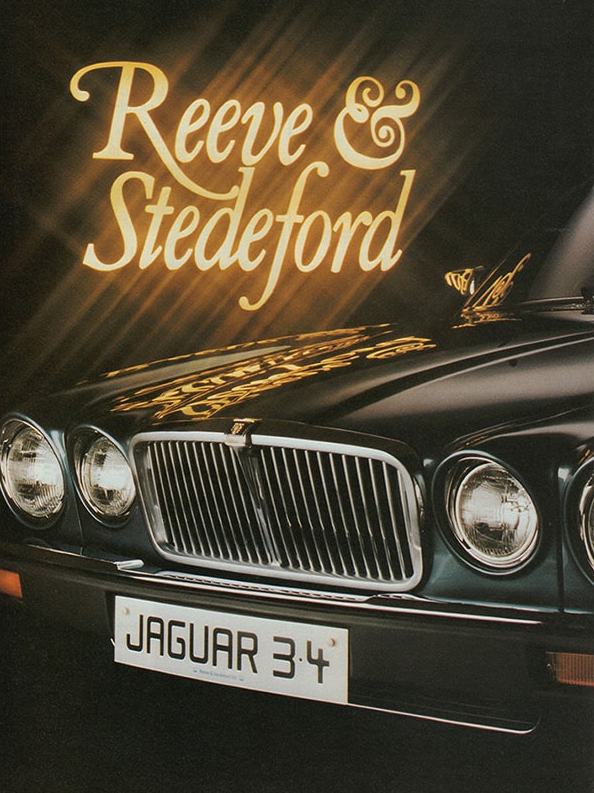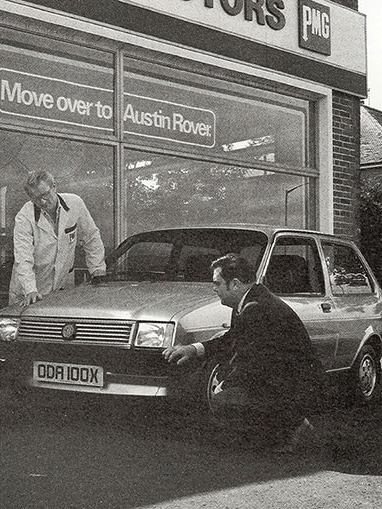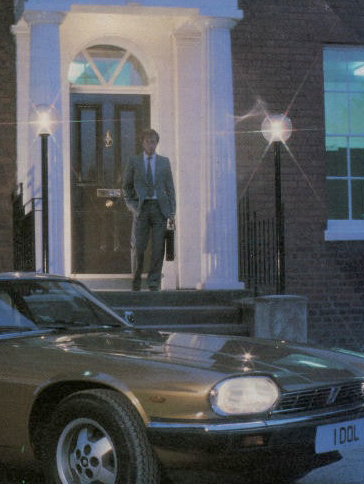An assured start
Joseph A Patrick moved to Birmingham in 1889 from Hull, to pursue his business career with Britannic Assurance and rose through the ranks to become Chairman and a leading supporter of the Methodist Church. Following his death, his son Albert (great-grandfather of the present Chairman) travelled the country opening branches for Britannic Assurance.
Thanks to Albert’s experience in purchasing property for Britannic Assurance, and following the 1929 stock market crash, he purchased a prime site on Bristol Road, Selly Oak, known as Edgbaston Garage Ltd. An astute businessman, Albert realised that a career in stockbroking would be less than secure for his son Joseph (J A M Patrick). With typical foresight, he saw a brighter future in the burgeoning motor car industry and coupled with his son’s keen interest in all things automotive, encouraged Joseph to forge a new career in the motor trade. Due to the proximity of the Longbridge factory, Joseph soon became an Austin distributor, a relationship which would flourish over the following 50 years.
The next step
Joseph was quickly joined by two brothers whose surname – Jensen – has its own place in motoring history. This association was short-lived however and the following year the company became known as Patrick Motors Ltd. Along with being Austin distributors, the company fast gained a reputation as a leading specialist coach builder, producing the distinctive Patrick Specials which retailed at affordable prices. At this time, Joseph was also enjoying considerable success in the field of motor sport, driving Patrick Specials amongst others, in trials and hill climbs as well as competing at Brooklands.
The coach building business prospered until the mid-thirties, however with the decision to streamline production by the larger manufacturers, Joseph took the bold step to focus on developing the sales and service facilities at the company’s two sites, located on the Bristol Road in Birmingham city centre and out of town in Olton. At the commencement of World War II, some diversification was obviously required. New companies, Aluminium Bronze and Verichrome Plating were founded. The Selly Oak premises were converted to a foundry producing Aluminium Bronze components for the armourments sector. Aluminium Bronze, along with Verichrome Plating, were subsequently sold to Solar Industries. Diversification also continued with Draftex, which became a leader in motor vehicle door sealing systems.
Up in the air
Following the end of World War II, with cars being exported to America, coupled with their unaffordability for the majority of people, it was decided to explore the opportunity to employ ex-RAF pilots. This led to Joseph forming Patrick Aviation. The fleet, of nearly 20 aircraft, comprised de Havilland Rapides, Airspeed Consuls and Miles Aerovans, to name a few.
The first daily scheduled service from Birmingham’s Elmdon Airport to the Channel Islands was established and the Patrick fleet carried Midlands made goods for export to destinations throughout Europe. At the same time, the family also opened Moreton Patrick, a furniture retailer, in Sheep Street, Stratford-upon-Avon. Patrick Aviation ceased flying in 1953 when, despite strong representations by the local MP in Parliament, the scheduled routes were taken over by British European Airways.
Patrick Aviation did much to establish Elmdon as a commercial airport
The company’s flying ambulance service in action at Elmdon Airport, Birmingham
Back on the ground
Despite the other business ventures, Patrick Motors Ltd still continued with the Austin relationship expanding. At its peak, Patrick Motors Ltd was supplying Austin vehicles to 30 dealers in the region. The group soon expanded its motor business activities and the company became known as Patrick Motors Group. PMG purchased prestigious Daimler distributors, Reeve and Stedeford, on Broad Street, Birmingham, and Spinks of Bournemouth. PMG also purchased the public company, Westover Motors, which was distributing Morris vehicles in Southern England.
Westover Motors was a major acquisition for the Patrick Motors Group.
Over the years associations continued to develop, with PMG retailing many marques at a variety of locations. These marques included manufacturers such as Jaguar, Daimler, Vauxhall, Opel, Bedford, Subaru, Isuzu, Peugeot/Talbot, Toyota, Mercedes-Benz and primarily Austin Rover. During this period of time, the company also became the largest Unipart parts supplier in the area, with its distribution centre based in Dawlish Road, Birmingham. PMG is further credited with pioneering cheap petrol in the Midlands region with its link up with VIP and ICI petrol brands. The numerous forecourts around the region became well known for their value for money, and were only closed when the supermarkets became dominant in this market.
After Joseph died in 1982 it was decided to make a gradual withdrawal from the retail motor trade due to the increasingly excessive demands of the manufacturers. A phased approach was adopted and the last retail location for PMG, Mercedes-Benz dealership Patrick Solihull, was sold in 1999.
An illustration commissioned by Patrick Motors Group to celebrate the Golden Jubilee anniversary in 1980
The next generations
Alexander Patrick joined the company in 1962, taking the family to the third generation. Alexander was a driving force for the business and oversaw successful ventures such as PMG Forecourts Ltd, The Patrick Motor Museum, The Lombard Room Restaurant and The Norton Place Hotel. Whilst overseeing the consolidation within the motor trade, Alexander also maintained the property portfolio within PMG and followed his father in becoming Chairman of The Patrick Trust, a role he held until his passing in 2020.
The Patrick Trust is a general purposes charity which provides grants to local charities, primarily involved in the care of the young and elderly, but also with an occassional interest in the arts, combining these where possible. The Patrick Trust focuses on supporting Midlands’ charities. The national charity Muscular Dystrophy UK, of which Joseph A M Patrick was a founder, has been supported by the family with over £3million of funding being donated over the years, of which £1million was allocated to help fund the defining piece of research into Duchenne Muscular Dystrophy.
Julian Pritchard, nephew to Alexander and grandson of Joseph, joined the firm in a management capacity in 2004, after a career in Bournemouth/London. Julian later became the fourth generation to chair the various businesses/charities, and continues to do so to this day.










